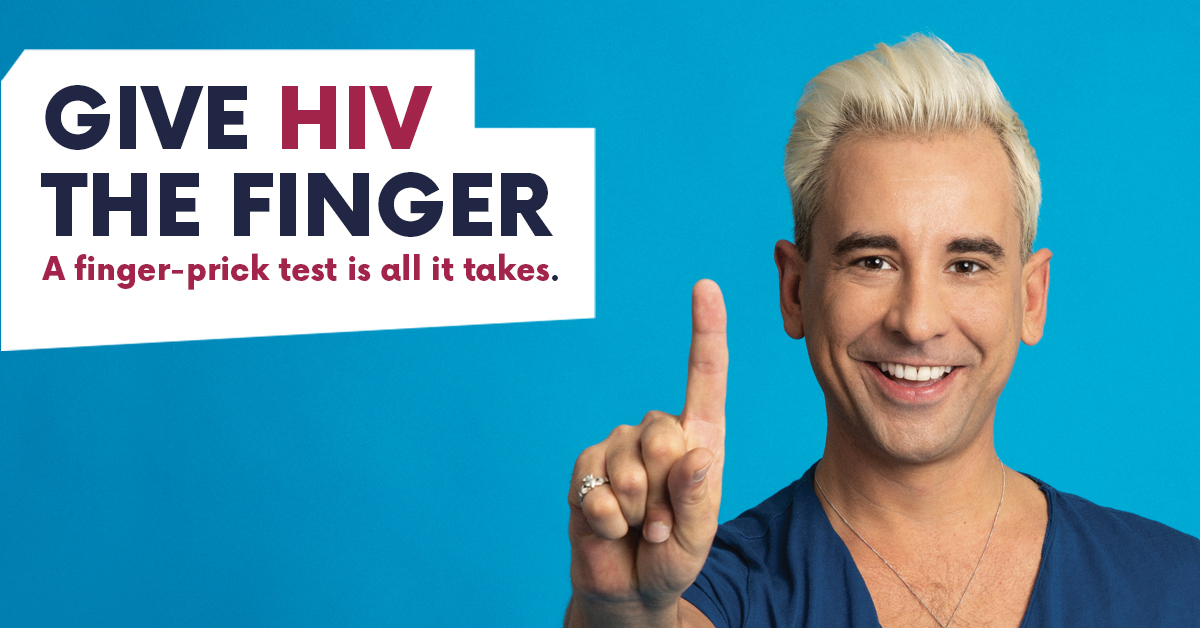South Tyneside Sexual Health supporting National HIV Testing Week starting on Monday 7th February 2022.
National HIV Testing Week is a campaign to promote regular testing among the most affected population groups in England. This helps to reduce the number of people living with undiagnosed HIV and those diagnosed late.
This year, the campaign returns with the successful creative ‘GIVE HIV THE FINGER: a finger-prick test is all it takes.’
Testing for HIV is quick and easy, all it takes is a finger-prick test. People can live with HIV for a long time without any symptoms, testing is the only way to know your HIV status.
If you have HIV, finding out means you can start treatment, stay healthy and avoid passing the virus on to anyone else.
There are many ways to test – at a sexual health clinic, your GP, through HIV and sexual health charities or by ordering a test online from the South Tyneside Sexual Health website.
Anyone diagnosed with HIV in the UK can access free treatment and support.
Why National HIV Testing Week 2022 is important
The number of people diagnosed with HIV fell by a third between 2019 and 2020, but there is still work to do:
1 in 20 people with HIV are unaware they have it, increasing the risk of passing HIV on to sexual partners.
In 2020, 42% of people first diagnosed in England were diagnosed late. This correlates to poorer long-term health outcomes; in 2019, people diagnosed late had more than a sevenfold increased risk of death within a year of diagnosis.
The number of people testing for HIV in sexual health clinics decreased by 30% in 2020. It is important to remind people at risk of HIV the importance of regular testing and the options available
The impact of COVID-19
The latest surveillance data reports a 32% drop in new sexually transmitted infections (STIs) in England. Whilst the new report reaffirms that the UK is continuing to see a downward trend in new HIV diagnoses, it is clear COVID-19, and in particular, lockdown restrictions implemented to respond to the pandemic have contributed to this decline during 2020.
- The number of people tested for HIV in sexual health services (SHS) fell by 30%, and 47% of people who tested for HIV did so online in 2020.
- An estimated 4,980 – 6,960 people with HIV were not seen in care during the year, either virtually or face-to-face, more than twice the number in 2019.
- Sadly, at least 99 deaths recorded between March and June 2020 amongst people with HIV were due to COVID-19.
If you would like to test for HIV please contact us on 0191 4028191 or order online by visiting Order a STI test kit | SH:24 (sh24.org.uk)

